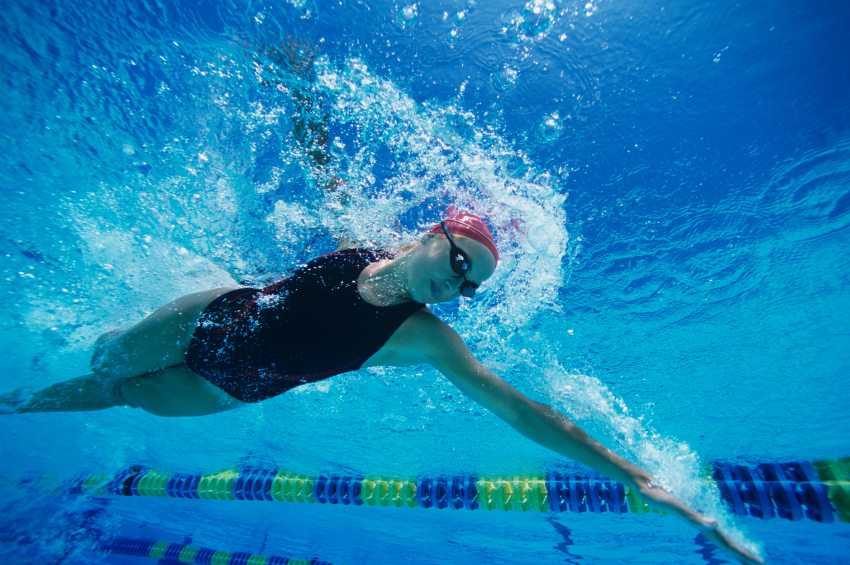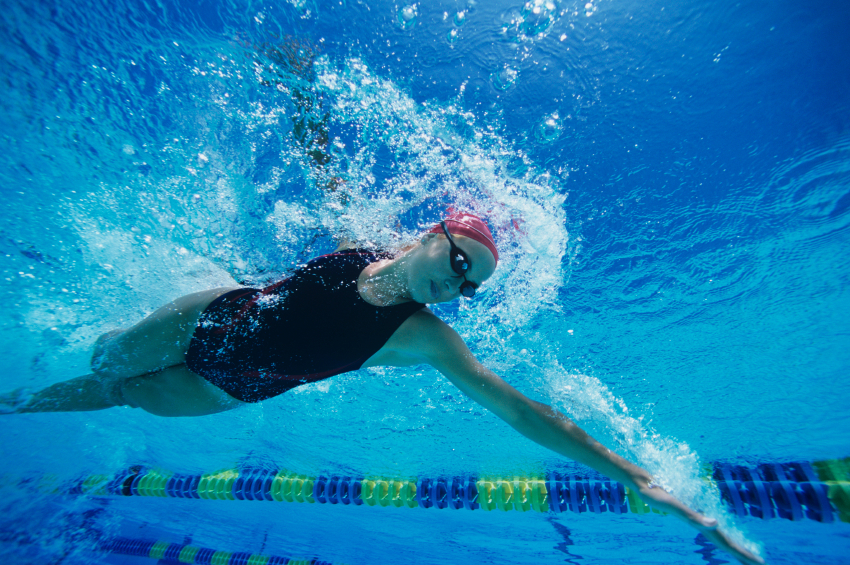
So you have an exercise goal and you are busy working towards it… aren’t you?
Having the intention of reaching our goals is something many people aspire to, whether it be a really BIG goal such as being able to put down the deposit to buy a house, or to travel to South America, or a smaller goal such as losing those two kilos which have been hanging around your tummy for too long, or signing up for that art class you promised yourself you would do.
Big or small, having the intention to achieve your goal is one thing, but are you committed to it – really committed?
Last week I was experiencing a bit of back stiffness (self-inflicted from spending too long sitting working at the computer), so I decided to nip off down to the local pool nice and early to loosen up those joints. I normally swim there a couple of times a week, so this was just an extra session.
I was in the water by 7 a.m. (early by my standards, though not by many of the other pool goers who had already finished their early sessions) and I noticed a lady whom I recognised, already in the water doing some water walking.
I caught up with “Ruth” (not her real name) in the showers and we had a brief catch up chat. She told me she liked to do her water walking (8 x 100 metres) because her bad knees now made it difficult for her to kick properly. Although she still manages 8 x 100 metres of freestyle swimming in addition to her water walking each time.
She couldn’t stay to chat long because she had to be ready to catch the bus home – goodness I thought, I wonder what time she was up to catch the bus to the pool? Having the luxury of a car to simply hop in and out of, made me feel somewhat guilty.
Ruth said she loved coming to the pool and tries to go at least three times a week – sometimes she goes x5 a week. Now I was feeling incredibly lazy!
You see for Ruth, going to the pool is a commitment she has made, partly because she enjoys it, but mostly because her goal is to remain as physically well as possible and independent.
Ruth is eighty years young. She is committed to her goal and her commitment has paid off, as she is able to fully participate in her life to the extent she wants to and she has a lot of fun in the process.
Participating in physical exercise has been shown in countless studies to be the best workout for our brain because it promotes the brain’s natural plasticity – boosting memory and thinking skills.
Researchers from the University of Edinburgh found that people over the age of 70 who took regular exercise showed less brain shrinkage compared to those who did little. A shrinking brain as it implies, means less brain power!
They also showed that the exercisers had less physical damage seen on brain scan in terms of scars seen in the white matter and conserved more grey matter.
Increasing your level of physical activity, even if it is just a short walk each day is good for your brain.
So in terms of maintaining your own physical activity: How committed are you?
Ref:
A. J. Gow, M. E. Bastin, S. Munoz Maniega, M. C. Valdes Hernandez, Z. Morris, C. Murray, N. A. Royle, J. M. Starr, I. J. Deary, J. M. Wardlaw. Neuroprotective lifestyles and the aging brain: Activity, atrophy, and white matter integrity. Neurology, 2012; 79 (17): 1802


